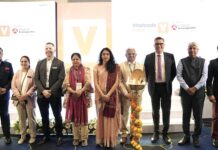
Representatives of the Natural Products Association (NPA) recently met FDA officials in response to a recent determination by regulators that an anti-aging ingredient, β-NMN (beta-nicotinamide mononucleotide), cannot be marketed in dietary supplements due to its earlier investigation as a pharmaceutical drug.
NPA CEO and President Dan Fabricant requested the FDA open a docket on NMN to allow stakeholders to submit information and comments to the agency on the presence of the natural ingredients in food and supplements.
Cara Welch, who oversees FDA’s Office of Dietary Supplement Programs (ODSP), advised Fabricant in an email that her agency would review and respond to NPA’s request.
In an interview, following the meeting, Fabricant said he and NPA’s outside counsel, Kevin Bell, made a few key points during the 50-minute conference call with FDA officials, who included Welch and two other representatives from ODSP, as well as a lawyer from the Office of Chief Counsel, Louisa Nickerson. Several industry stakeholders also joined the conference call, including Now Health Group CEO Jim Emme, an NPA board member.
During the meeting, Fabricant recollected, he said NMN poses no safety issues, and he challenged FDA on its legal interpretation of a section in U.S. law that prohibits ingredients in dietary supplements if they have been authorized for investigation as a new drug and the subject of substantial clinical investigations that have been instituted and made public.
According to the FDA, the prohibition doesn’t apply if the ingredient or ‘article’ was lawfully marketed as a natural food or dietary supplement before it was authorized for investigation as a new drug.
NPA has shared documents with FDA that may have relevance to the analysis above. The materials include a few patents related to NMN in food and supplements, as well as a company’s announcement four years ago that its ingredient was self-affirmed GRAS (generally recognized as safe).
IndiFoodBev — authentic, impactful and influential
An English-language food and beverage processing and packaging industry B2B platform in print and web, IndiFoodBev is in its third year of publication. It is said that the Indian food and beverage industries represent approximately US$ 900 billion in revenues which implies more than 20% of the country’s GDP. Eliminating the wastage on the farmside can help to deliver more protein to a higher number of the population apart from generating sizable exports. The savings in soil, seeds, water, fertilizer, energy and ultimately food and nutrition could be the most immense contribution that country is poised to make to the moderation of climate change.
To improve your marketing and grow sales to the food and beverage processing and packaging industry, talk to us. Our research and consulting company IppStar [www.ippstar.org] can assess your potential and addressable markets in light of the competition. We can discuss marketing, communication, and sales strategies for market entry and growth.
Suppliers and service providers with a strategy and budget for targeted marketing can discuss using our hybrid print, web, video, and social media channels to create brand recognition linked to market relevance. Our technical writers are ready to meet you and your customers for content.
The second largest producer of fruit and vegetables in the world is continuously expanding processing capacities and delivery systems with appropriate innovative technologies. We cover product and consumer trends, nutrition, processing, research, equipment and packaging from farm to thali. Get our 2025 media kit and recalibrate your role in this dynamic market. Enhance your visibility and relevance to existing markets and turn potential customers into conversations. Ask for a sample copy of our bi-monthly in print or our weekly IndiFoodBev eZine each Wednesday.
For editorial info@ippgroup.in — for advertisement ads1@ippgroup.in and for subscriptions subscription@ippgroup.in
Naresh Khanna – 10 February 2025
Subscribe Now










